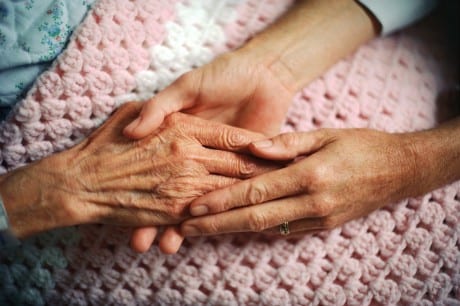
Depression in the Later Years: How to Help an Aging Loved One Cope
Do you have an aging loved one in your life? Have you ever wondered if they are depressed and not understood why or how you can help? Now is the time to equip yourself with information and tools to help them! Depression is rising among our aging loved ones. According to the National Institutes of Health, of the 35 million Americans age 65 or older, about 2 million suffer from full-blown depression. Another 5 million suffer from less severe forms of it. This issue is commonly being looked over by doctors and caretakers because depression’s traits are mistaken as a normal part of aging. It doesn’t always look like traditional depression. Depression at this age includes lower energy, lack of motivation, but also might include anxious symptoms, paranoia, and fear. It can also look similar to dementia or be a side effect of a medication. Because of this it is even more important to be aware of what your loved one is going through.
There are many reasons an aging adult could experience depression. The following are a few common triggers to be aware of:
- They often feel isolated and crave human interaction. It’s a good indicator this is the case when you hear, “it’s so good to hear your voice” each time you call. They might feel that people don’t care if they are around or not.
- They often experience overwhelming amounts of loss in this stage of life. Loss of spouse, of their mobility, health, and friends dying are common, painful losses. Another loss can come after retirement in that they feel they have lost their identity and sense of purpose that they related to their job.
- Aging adults experience many body changes which can result in pain. As this happens a person’s mood will often change when they don’t feel good.
- They unfortunately may start loosing privileges like driving, being able to make their own choices about money, living arrangements, and their health.
- Sometimes their roles are changing within the family. The one who was once a strong parent now seems more like a child who needs care.
- They are having to be dependent and ask for help.
- They might go into a nursing home or into assisted living.
- Some might feel regrets in life when they look back.
- Their adult children seem too busy with their own lives to spend time with them.
- Financial stress can be a big trigger of depression in this age, especially if they didn’t save enough for retirement and are overwhelmed by costly health care.
- They could be a victim of Elder Abandonment and/ or Abuse.
As you can see, aging adults are extremely susceptible to depression, but unfortunately it can be difficult to help them get the help they need. They are often reluctant to talk about their feelings and ask for help because they don’t want to be a burden. It can be hard for them to give up control and lean on others for support. This is why it is so important for you to reach out to your loved one to help them cope. The following are a few ways to help:
- Invite them out to be active. Expect a “no” due to insecurity regarding incontinence and/or health concerns when not at home. Home feels safe. Try to reassure them and take steps to make them feel comfortable enough to leave for a short time.
- If they are too resistant, make regular visits to their home. Phone calls can also help.
- Remember the hard anniversaries of losses they have had and reach out to them.
- Community Groups, assisted living, and club activities can be helpful. Being with like-minded people helps them not feel crazy or as alone.
- Anti-depressant medication for the aging adult can be an option.
- Avoid Guilt trips while trying to motivate them. It may make them feel that your love is conditional. Try not to destroy the relationships and supports they have.
- Help them see what they CAN control.
- Help them make and fulfill a Bucket List. This can give them motivation.
Hopefully you feel more equipped to help your aging loved one avoid the downward spiral of depression. If you are worried about a loved ones struggle with depression, ask a professional involved for assistance in getting them the appropriate help. Staying in tune to their triggers and assisting them in the healing process can give them just the boost they are needing!



